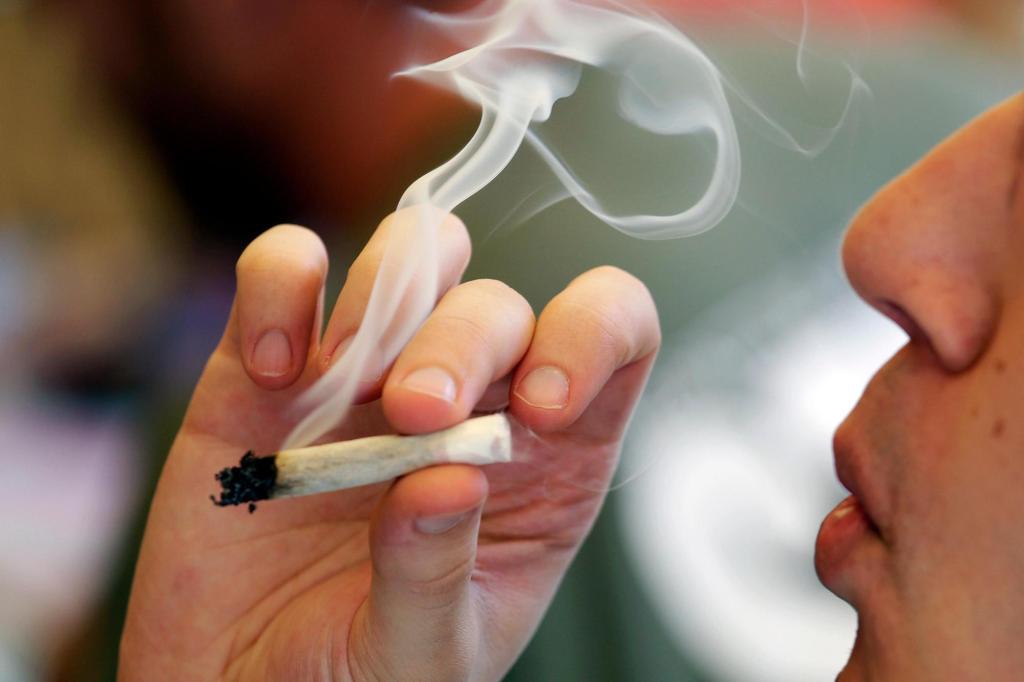Depending on where you live and how you want to use it, it is pretty easy to get marijuana in the United State. At first medical marijuana, which has legitimate palliative uses, achieved widespread acceptance.
Over time, however, the requirements for proof of medical use weakened, leading to de facto legalization in many areas. Now 24 states plus the District of Columbia, representing half the country’s population, have approved legalization for recreational use.
And yet the key question remains unanswered: Is this really a good idea?
For all the political popularity of marijuana legalization, a lot of people I know don’t love the practical consequences. In many places — both cities and suburbs — the smell of marijuana wafting through the air is commonplace. Meanwhile, pot has become much more potent, having stronger effects on users than it did 30 years ago.
But there is a way to approach this question more systematically. What do the numbers show? A new study from the Federal Reserve Bank of Kansas City offers some important keys toward an answer.
Start with the good news, or what appears to be the good news. Post-legalization, incomes in legalizing states grew by about 3%, home prices went up by 6%, and populations rose by about 2%. The researchers used appropriate statistical controls, but there is some question about causation vs. correlation. At the very least, it seems highly likely that state GDP went up: A state with legal marijuana can sell it, including to users in other states. Selling marijuana is a new business, and like any new business, it boosts the local economy.
But it is not so simple. Measures of GDP and GDP per capita are usually good metrics for human well-being — but not always. Cigarette sales, for instance, are not as beneficial for citizens as the initial GDP boost might indicate because nicotine is bad for most people.
Marijuana sales involve some of the same problems. Many people want to smoke it, but it is not good for everyone.
Marijuana advocates argue that it is less addictive than alcohol and healthier than cigarettes. They point out that it can also be great fun and a source of social bonding. Even if this is all true — and I have no reason to believe that it isn’t — the aggregate numbers suggest some very real concerns.
In states with legal marijuana, self-reported usage rose by 28%. Meanwhile, substance use disorders increased by 17%. Chronic homelessness went up by 35%, a possible sign that marijuana use leads to a downward financial spiral, and perhaps job loss, for many users. Arrests increased by 13%, although reported crime did not itself go up.
This combination of results is difficult to interpret. Perhaps some of the increase is due to governments investing more resources in law enforcement. It’s also true that numbers do not quantify the pleasure enjoyed by responsible marijuana smokers.
That said, these results are hardly a great advertisement for the legalization experiments. They stand in jarring contrast to what advocates promised: an end to black markets, safer marijuana and a better-protected user population. And if I may be allowed to think less like an economist for a moment, I confess I don’t feel good about a social practice that lowers effective IQ. No one smokes pot to perform better on their SATs.
I remain of two minds on the entire question. My libertarian leanings lead me to strongly oppose throwing people in jail for what is essentially self-regarding behavior, in this case marijuana usage. Yet the empiricist in me can see that marijuana legalization has so far proved a disappointment.
It would be hard to use this latest research paper to persuade people that additional drugs should be legalized as well. And I would not be surprised if some governments decided to end their experiments with marijuana legalization. Unless you are a responsible user, how exactly does it make you better off? Looking only at the practical issues, what is the case for legalization?
The next step, then, is to come up with a more workable version of marijuana legalization. It won’t be easy.
Tyler Cowen is a Bloomberg Opinion columnist, a professor of economics at George Mason University. ©2024 Bloomberg. Distributed by Tribune Content Agency.
